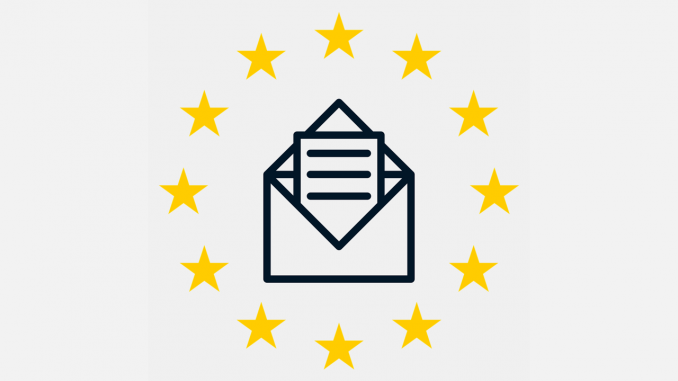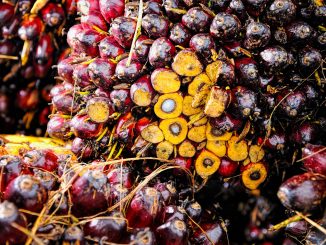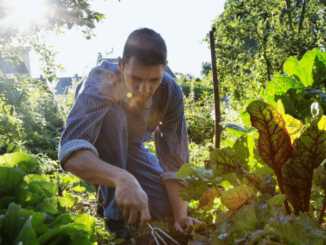
Today, thirty-three food and farming organisations, including ARC2020, have published an open letter to the top candidates for the next European Commission President to push for the implementation of EU food policy. The organisations, from farming, fisheries, environment, animal welfare, health, consumers, development, social justice, climate, and forestry, call for the Vice-President to be responsible for this process. The letter marks the next step of IPES-Food’s report Towards a Common Food Policy for the EU, the outcome of a three-year participatory research process involving over 400 food systems actors.
Here it is in full.
Brussels, 08/05/2019
To the lead candidates for the role of European Commission President
Dear Spitzenkandidaten: Manfred Weber (EPP) Frans Timmermans (PES) Jan Zahradil (ECR) Nical Beer, Emma Bonino, Violeta Bulc, Katalin Cseh, Luis Garicano, Guy Verhofstadt, Margrethe Vestager (ALDE) Ska Keller, Bas Eickhout (GREENS) Nico Cue, Violeta Tomič (GUE) Oriol Junqueras (EFA)
The undersigned civil society organisations, in the areas of farming, fisheries, environment, animal welfare, health, consumers, consumer co-operatives, development, social justice, climate, and forestry, are writing to you to seek a new direction in the way food policies are made and priorities are set. We propose two clear solutions :
1. the EU should develop an integrated EU food policy over the course of the next legislature
2. there should be a European Commission Vice-President responsible for ensuring the sustainability of our food systems with a mandate to coordinate the efforts of different Directorates.
A transition towards sustainable food systems is urgently needed to deliver numerous benefits for people and the planet, and to address some of the existential threats that we face. It will ensure the ecological transition necessary to tackle climate change impacts, water scarcity, soil degradation, biodiversity collapse, fish stock depletion, animal welfare, chemical pollution, and food waste and loss. It will allow farmers and fishers to achieve a fair income, as a basis for thriving rural communities. It will also halt the spread of obesity and non-communicable diseases (NCDs) by making healthy and sustainable diets affordable and accessible for all citizens. It will help alleviate poverty and ensure food security in the Global South.
Reforming our food systems is therefore an opportunity for the EU and its Member States to address the concerns of many citizens, and is the key to meeting the UN Sustainable Development Goals (SDGs), the Paris Agreement on climate change, and many other commitments to protect people and the planet.
In order to achieve the transition to sustainable food systems, the EU must work towards an integrated food policy. A new governance framework for food systems is required for four reasons:
● Integration across policy areas. The various policies [1] affecting food systems in Europe have developed in an ad hoc fashion over many years. As a result, objectives and policy tools have multiplied in confusing and inefficient ways; policies focused on competitiveness continue to contradict sustainability objectives [2]. An integrated food policy would be designed to bring different policies into coherence, establish common objectives, and avoid trade-offs and hidden costs, in Europe and around the world.
● Integration across governance levels. Social innovation is emerging rapidly at the local level, from Community Supported Agriculture schemes to sustainable school food procurement, from Food Policy Councils to pesticide-free districts. EU and national policies are, however, ill-equipped to encourage this type of innovation. An integrated food policy would remove hurdles to local innovation and support grassroots experimentation in all of its diverse forms.
● Governance for transition. Only an integrated policy with a long-term vision can drive the coordinated shifts that are required across food production, processing, distribution, and consumption in order to meet the SDGs, tackle climate change, and address other urgent global challenges.
● Democratic decision-making. Whether we look at Common Agricultural Policy (CAP) reform, pesticide approvals, or trade negotiations, the gap between what citizens want food systems to deliver, and what current policies are able to achieve, is wider than ever. By putting a coherent food strategy at the core, and bringing a wider range of actors around the table, non-economic interest groups will increasingly be heard. This will allow path dependencies to be challenged, decision-making processes to be reclaimed from powerful lobbies, and new priorities to emerge on the basis of a more democratic process.
More and more voices are calling for a shift towards integrated food policy approaches, including several EU institutions and agencies [3]. The case for policy integration has also been made by a wide range of civil society and scientific groups. Notably, in February 2019, IPES-Food published a detailed blueprint for an EU ‘Common Food Policy’, based on a three-year process of participatory research and deliberation involving over 400 food system actors [4].
Immediate steps can and must be taken to set this governance shift in motion, first and foremost : a European Commission Vice-President responsible for ensuring sustainability of our food systems, with a mandate to coordinate the efforts of different Directorates [5] impacting our food systems.
The time for action is now: daring to change the way we make policies, adopting systemic approaches, and providing the tools we need to spark those changes. An integrated food policy can reclaim public policy for the public good, rebuild public confidence in the European project, and put the EU on track to meet the SDGs and the Paris Climate Agreement.
Signed by
- Act Alliance EU
- Action Aid
- ARC2020
- Arche Noah
- BrirdLife International
- Compassion in World Farming
- Corporate Europe Observatory
- CNCD 11.11.11
- Die Agronauten
- European Environmental Bureau
- European Public Health Alliance
- European Coordination Via Campesina
- UNESCO Chair in World Food Systems
- European Community of Consumer Cooperatives
- Euro Health Net
- Euronatur
- Fair Trade Advocacy Office
- Feedback
- Food Watch International
- Friends of the Earth Europe
- Greenpeace
- Global Health Advocates
- Health and Environment Alliance (HEAL)
- Health Care Without Harm
- Humane Society International
- IFOAM
- IPES Food
- Low Impact Fishers of Europe
- Pesticide Action Network Europe
- Safe Food Advocacy Europe
- Slow Food Europe
- Voedsel Anders
- Zero Waste Europe
[1] These include agriculture, fisheries and aquaculture, trade and investment, food safety, health, circular economy, environment, animal health and welfare, development, research, education, fiscal and social policies, market regulation, and competition.
[2]Examples of contradictions between policy objectives/impacts can be found in IPES-Food. 2019. Towards a Common Food Policy for the European Union: The policy reform and realignment that is required to build sustainable food systems in Europe. International Panel of Experts on Sustainable Food systems.
[3] These include the European Economic and Social Committee, the Committee of the Regions, the Joint Research Centre, the Commission’s Scientific Advice Mechanism (SAM), the European Environment Agency, and the Standing Committee on Agricultural Research.
[4] IPES-Food. 2019. Towards a Common Food Policy for the European Union: The policy reform and realignment that is required to build sustainable food systems in Europe. International Panel of Experts on Sustainable Food systems.
[5] These include DG AGRI, CLIMA, COMP, EMPL, ENERGY, ENVI, GROW, MARE, SANTE, TRADE, and TRANSPORT.
#EU3F | The EU Food and Farming Forum – An experiment in co-creation
De Schutter | As CAP Reform Enters Familiar Cycles, a Common Food Policy Offers a Plan B for the EU




